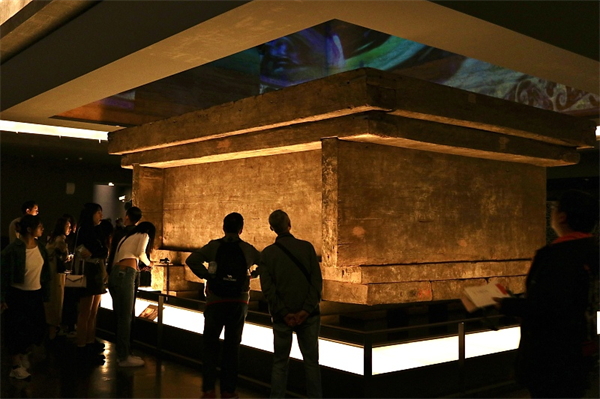Mawangdui is an archaeological site in Changsha City, Hunan Province, which consists of two saddle-shaped hills and contains the tombs of three people from the Western Han Dynasty (206BC-25AD). Excavated from 1972 to 1974, the site has a number of valuable relics that reflect the lives of people during that period. Most of the unearthed artifacts are displayed at the Hunan Provincial Museum.

A file photo shows people visiting the Hunan Provincial Museum in Changsha City, Hunan Province. /CFP
To improve historical and cultural awareness and boost tourism, the local government has launched a series of programs to promote a new type of cultural tourism. Based on the relics unearthed from the Han tomb at Mawangdui, a digital exhibition was created to showcase the restoration work and display the historical relics alongside a traditional Peking Opera performance. The show tells the story of Xin Zhui, wife of the prime minister of the Changsha state, who taught her son to learn from their father's patriotic spirit and devote himself to the country.

A file photo shows people visiting the Hunan Provincial Museum in Changsha City, Hunan Province. /CFP
The show features a uniquely artistic set design, multimedia visual effects and other advanced technologies to vividly bring ancient stories to life on stage. In addition to the Peking Opera show, a series of both traditional and modern performance methods have been adopted. Multimedia technology has been innovatively used to enhance the choreography and presentation of cultural relics through the use of high-precision three-dimensional digital reduction techniques. These artistic effects all combine to create a wonderfully immersive experience for the audience.
来源:enghunan.gov
编辑:谭婕倪